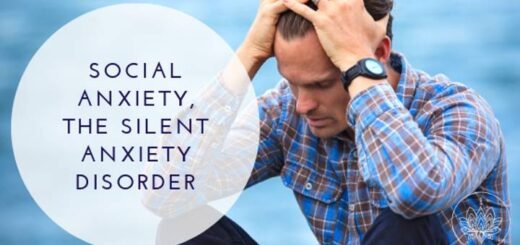Effective Treatments for Social Phobia in New Zealand
Social phobia, commonly known as social anxiety disorder, significantly impacts the lives of many New Zealanders. Characterized by intense fear and avoidance of social situations due to the fear of being judged or embarrassed, it meets specific social anxiety criteria that can hinder personal and professional growth. In New Zealand, awareness and recognition of social phobia have increased, prompting the development of tailored resources and treatment options to support those affected.
Navigating the challenges of social phobia requires access to effective interventions and community support. Various therapeutic approaches, including cognitive-behavioral therapy and mindfulness techniques, can address the underlying issues associated with social anxiety criteria. For more insights and resources dedicated to social phobia in New Zealand, visit Exploring Social Phobia. Here, individuals can find valuable information to aid their journey toward recovery and improved quality of life.
Understanding Social Phobia: A Comprehensive Overview
Social phobia, also known as social anxiety disorder, is characterized by an intense fear of social situations where a person may be judged or scrutinized by others. In New Zealand, the prevalence of social anxiety is significant, affecting many individuals across various demographics. The social anxiety criteria include symptoms such as excessive self-consciousness, fear of embarrassment, and avoidance of social interactions. Understanding these symptoms is crucial for individuals seeking help. They may find themselves avoiding gatherings, public speaking, or even simple interactions, which can severely impact their quality of life. For more information on the symptoms and criteria, you can visit this resource tailored for New Zealand residents.
Cognitive-Behavioral Therapy (CBT): A Primary Treatment Option
Cognitive-behavioral therapy (CBT) is one of the most effective treatment options for social phobia. This therapy focuses on identifying and changing negative thought patterns and behaviors associated with social anxiety. In New Zealand, many trained psychologists and counselors offer CBT specifically tailored for social anxiety. During therapy sessions, individuals learn coping strategies to face their fears gradually. For example, a therapist might encourage a client to engage in small social interactions and gradually increase their exposure to more challenging situations. This step-by-step approach helps build confidence. For those interested in exploring CBT, local resources can be found at this website, which offers guidance and support.
Medication: When Is It Necessary?
In some cases, medication may be recommended alongside therapy to manage the symptoms of social phobia. Antidepressants, particularly selective serotonin reuptake inhibitors (SSRIs), are often prescribed to help alleviate anxiety symptoms. In New Zealand, general practitioners can assess whether medication is appropriate based on the severity of the individual’s social anxiety. It’s essential for patients to have open discussions with their healthcare providers about the benefits and potential side effects of medication. Resources for medication management and support can be found at this platform, which provides information tailored to those experiencing social anxiety.
Self-Help Strategies for Managing Social Phobia
Self-help strategies can be an effective way to complement professional treatment for social phobia. Techniques such as mindfulness, deep breathing exercises, and journaling can help individuals manage their anxiety in social situations. For instance, practicing mindfulness can ground individuals in the present moment, reducing the overwhelming feelings of anxiety. Additionally, setting small, achievable social goals can help build confidence over time. In New Zealand, support groups and workshops can also provide a sense of community and shared experiences, making it easier to practice these strategies in a supportive environment. More information on self-help strategies can be found at this resource.
Joining Support Groups: Finding Community in New Zealand
Joining a support group can provide a sense of belonging and understanding for those dealing with social phobia. In New Zealand, various organizations offer support groups specifically for individuals with social anxiety. These groups allow participants to share their experiences and coping strategies in a safe and confidential environment. Many groups also facilitate social skills training, helping members gradually face their fears in a supportive setting. Connecting with others who understand the challenges of social phobia can significantly alleviate feelings of isolation. For more information on finding a support group near you, visit this informative site.
Online Resources: Accessing Help from Home
The rise of digital platforms has made accessing resources for social phobia more convenient than ever. In New Zealand, several online platforms offer virtual therapy sessions, self-help programs, and educational materials related to social anxiety. These resources can be particularly beneficial for individuals who may feel uncomfortable attending in-person sessions. Websites offer information about the social anxiety criteria and provide tools for self-assessment. Additionally, online forums and chat rooms offer a space for individuals to discuss their experiences and seek advice from others facing similar challenges. For a comprehensive list of online resources, check out this helpful site.
Seeking Professional Help: How to Get Started
If you or someone you know is struggling with social phobia, seeking professional help is a crucial step toward recovery. In New Zealand, various mental health professionals specialize in treating social anxiety. It’s important to find a qualified therapist who understands the social anxiety criteria and can tailor treatment to individual needs. When looking for help, individuals should consider factors such as the therapist’s experience, treatment approach, and whether they feel comfortable in the therapist’s presence. Initial consultations can often help determine if a particular therapist is a good fit. For guidance on finding professionals in your area, visit this dedicated resource.
FAQs
What is social phobia and how is it different from general shyness?
Social phobia, also known as social anxiety disorder, is a mental health condition characterized by an intense fear of social situations where one may be judged or scrutinized by others. Unlike general shyness, social phobia involves significant distress and impairment in daily functioning due to the overwhelming fear of being embarrassed or humiliated.
What are the criteria for diagnosing social anxiety disorder?
The criteria for diagnosing social anxiety disorder typically include a persistent fear of one or more social situations, avoidance of these situations, and significant distress or impairment in social, occupational, or other important areas of functioning. Individuals may fear being negatively evaluated or judged, which can lead to avoidance behaviors.
What treatment options are available for social phobia in New Zealand?
In New Zealand, treatment options for social phobia include psychotherapy, such as cognitive-behavioral therapy (CBT), which is effective in addressing the negative thought patterns associated with social anxiety. Additionally, medication, including selective serotonin reuptake inhibitors (SSRIs) and beta-blockers, may be prescribed to help manage symptoms.
Are there support groups for individuals with social anxiety in New Zealand?
Yes, there are several support groups and organizations in New Zealand that provide resources and community support for individuals dealing with social anxiety. These groups offer a safe space to share experiences, practice social skills, and learn coping strategies from others facing similar challenges.
How can I find a therapist who specializes in social phobia?
To find a therapist specializing in social phobia in New Zealand, you can start by searching through professional directories, such as the New Zealand Psychologists Board or the New Zealand Association of Psychotherapists. It’s also helpful to ask for recommendations from healthcare providers or to look for therapists who specifically mention expertise in treating anxiety disorders.
What self-help strategies can I use to manage social anxiety?
Self-help strategies for managing social anxiety include practicing relaxation techniques, such as deep breathing and mindfulness, gradually exposing yourself to feared social situations, and challenging negative thoughts related to social interactions. Keeping a journal to track progress and feelings can also be beneficial in understanding triggers and developing coping mechanisms.
Where can I access additional resources for social anxiety in New Zealand?
Additional resources for social anxiety in New Zealand can be found through mental health organizations, such as the Anxiety New Zealand Trust and the Mental Health Foundation. These organizations offer information, helplines, and workshops aimed at helping individuals better understand and manage their social phobia.
References
- Social Phobia New Zealand – A national organization providing information, support, and resources for individuals dealing with social phobia in New Zealand.
- Mental Health Foundation of New Zealand – Offers a range of resources and support services for mental health issues, including social anxiety and phobia.
- New Zealand Ministry of Health – Mental Health Services – Provides information about mental health services available in New Zealand, including treatment options for social phobia.
- Te Pou o Te Whakaaro Nui – An organization focused on mental health and addiction, offering resources, training, and information on various mental health conditions, including social anxiety.
- New Zealand Psychological Society – A professional body that provides resources and information on psychological services and treatments available for anxiety disorders, including social phobia.




